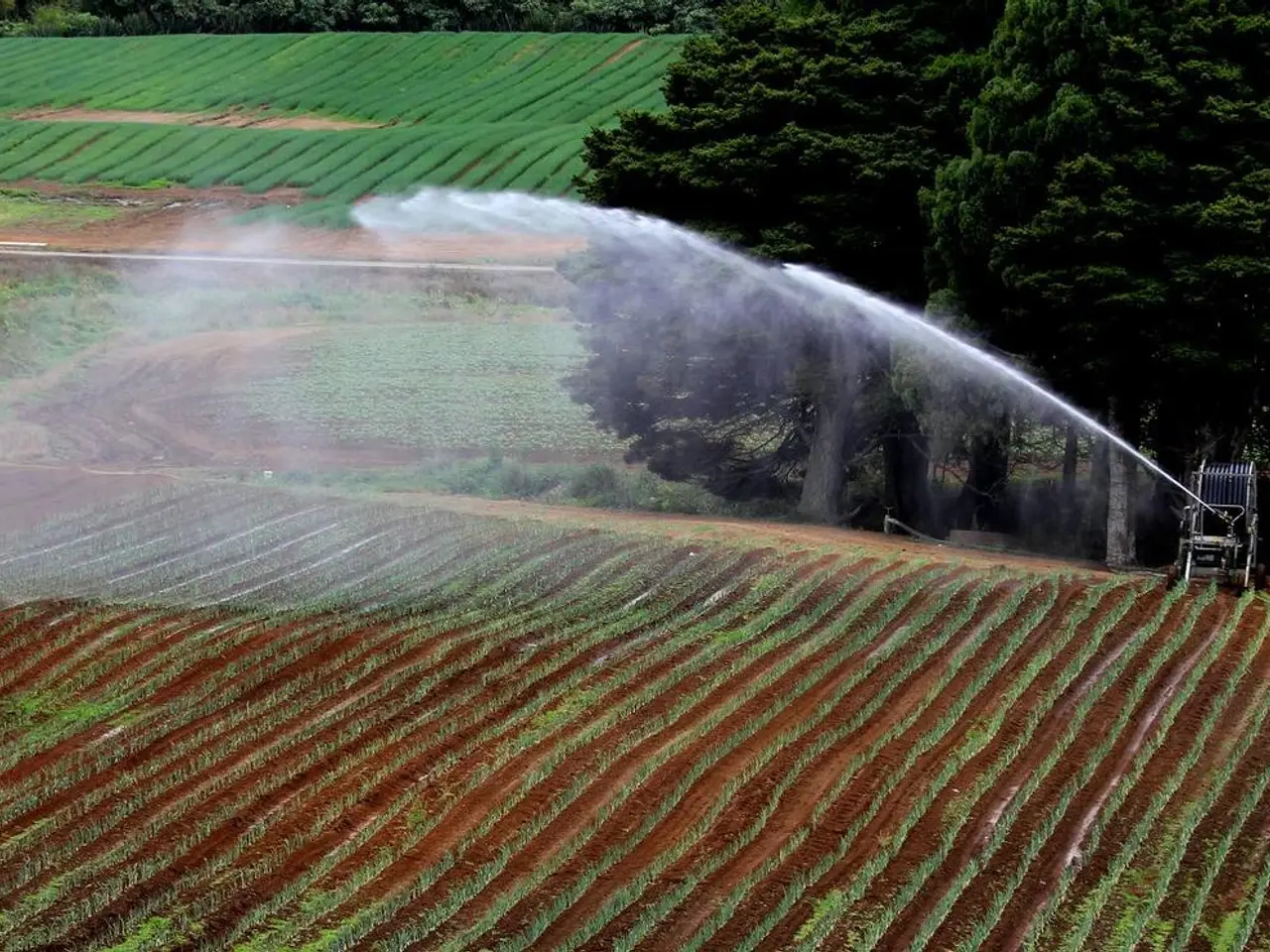Video exhibit of Agnès Pannier-Runacher addressing Bruno Retailleau's proposal to curtail financial backing for renewable energy sources.
In a recent development, France's Minister of Ecological Transition, Agnès Pannier-Runacher, has publicly criticised her counterpart, Interior Minister Bruno Retailleau, over his energy policy proposals. The disagreement unfolded following Retailleau's op-ed published in Le Figaro, where he called for the rebuilding of a nuclear park and the halt of renewable energy funding.
Pannier-Runacher, in a statement made on Public Senate, described Retailleau's claims as "irresponsible," "dramatic," and "the most basic populism." She emphasised that the current French government's official stance on energy policy emphasises a transition towards climate neutrality with significant reductions in fossil fuel use and a leadership role for low-carbon energy sources, including both nuclear energy and renewables.
The government plans to reduce the share of fossil fuels in France’s final energy consumption from 58% in 2023 to 30% by 2035, reflecting strong ambitions to cut reliance on fossil fuels. This aligns with broader goals of slashing greenhouse gas emissions and boosting sustainable energy.
Regarding nuclear energy, France continues to regard it as a critical pillar of its energy security and low-carbon strategy. Despite challenges such as aging reactors, which require significant investment for upgrades, and concerns about nuclear waste, the government sees nuclear power as essential for maintaining a stable, reliable, and low-carbon electricity supply.
On renewable energy, the government supports the expansion of wind and solar power but is navigating growing debates about grid stability and economic impacts due to overproduction risks. The rapid growth of renewables has triggered concerns about intermittency and grid stability, especially given incidents like the April 2025 blackout affecting Southern France, Spain, and Portugal.
The French energy regulator (CRE) is working on strategic guidelines for 2025-2030 to guarantee the success of the energy transition while meeting consumer needs and fostering a competitive, sovereign European energy market. This includes reforms to adapt to new consumption patterns and better integration of renewable energy.
Overall, France positions itself as a leader in Europe by promoting a diversified energy portfolio, combining advanced nuclear technology with renewables, and addressing infrastructure, cybersecurity, and environmental challenges to ensure energy security and affordability for the long term.
This nuanced approach reflects commitments both to national energy security and broader European cooperation on clean energy. However, Retailleau's op-ed, which suggested halting the funding of renewable energy, seems to contradict this stance, leading to Pannier-Runacher's public rebuke.
This is not the first time the two ministers have publicly opposed each other. Their previous dispute was about naturalization criteria. As the energy debate continues, it remains to be seen how this latest disagreement will unfold within the French government.
- The disagreement between Agnès Pannier-Runacher and Bruno Retailleau, both French ministers, extends beyond energy policy, with their previous dispute being about naturalization criteria.
- The current French government's stance on energy policy involves a transition towards climate neutrality, significant reductions in fossil fuel use, and a leadership role for low-carbon energy sources, including both nuclear energy and renewables.
- Amidst growing debates about grid stability and economic impacts due to overproduction risks, the government supports the expansion of renewable energy, but is also navigating these challenges to foster a competitive, sovereign European energy market.




